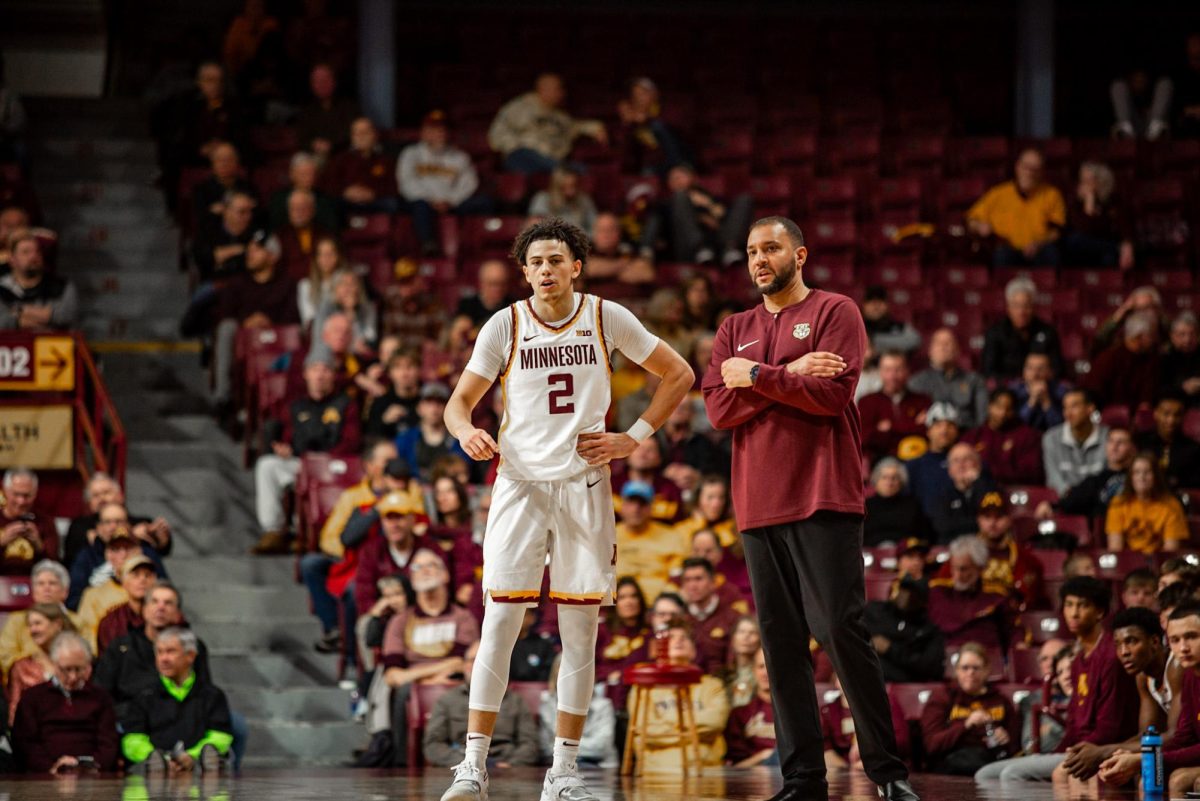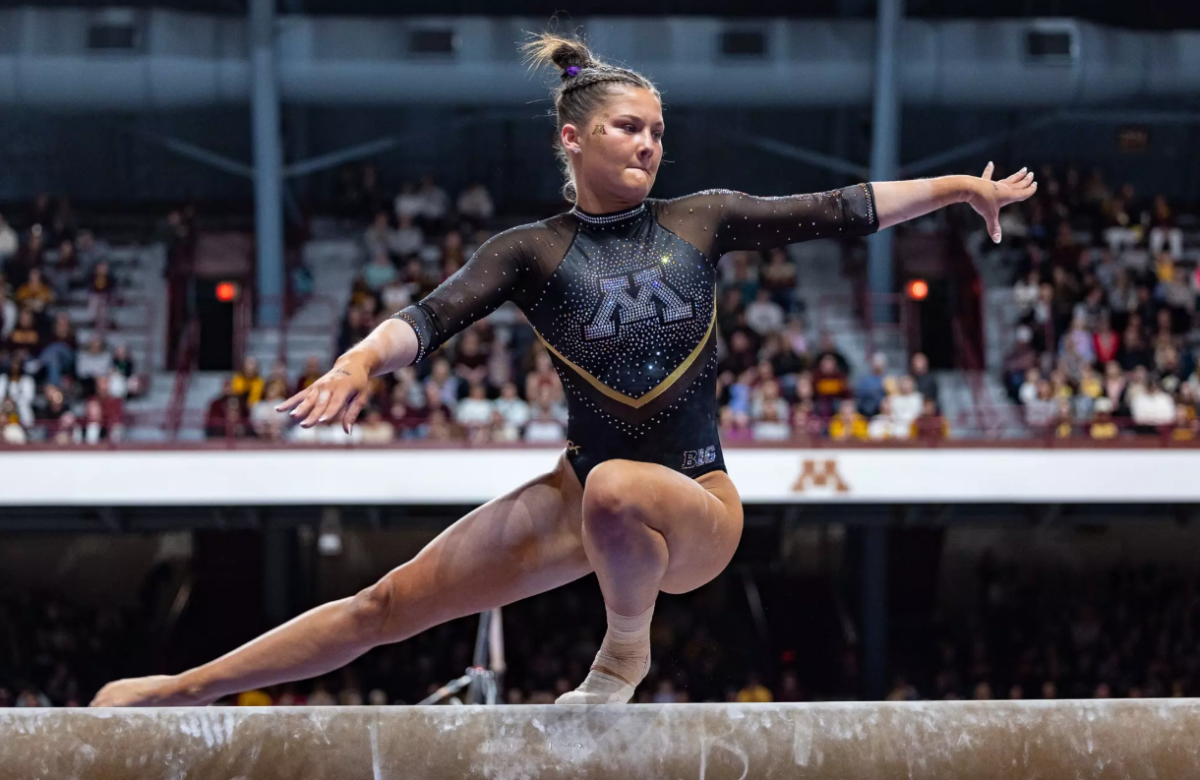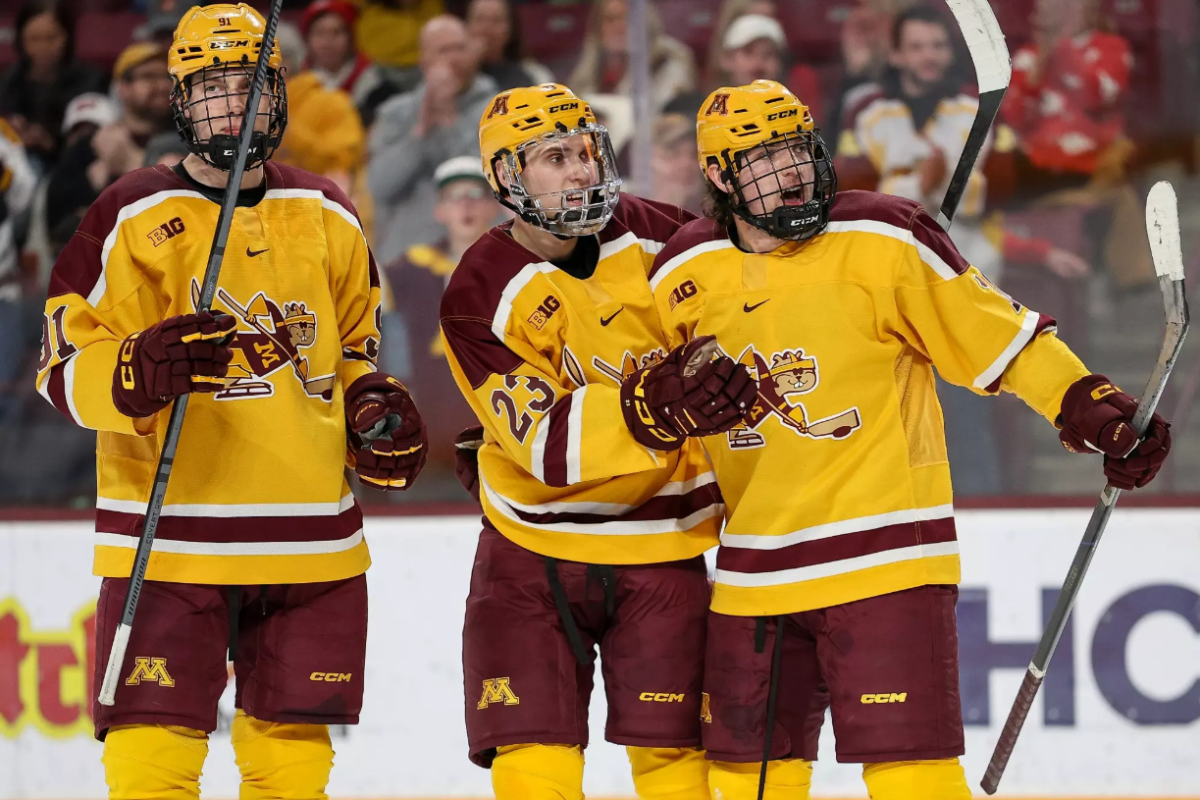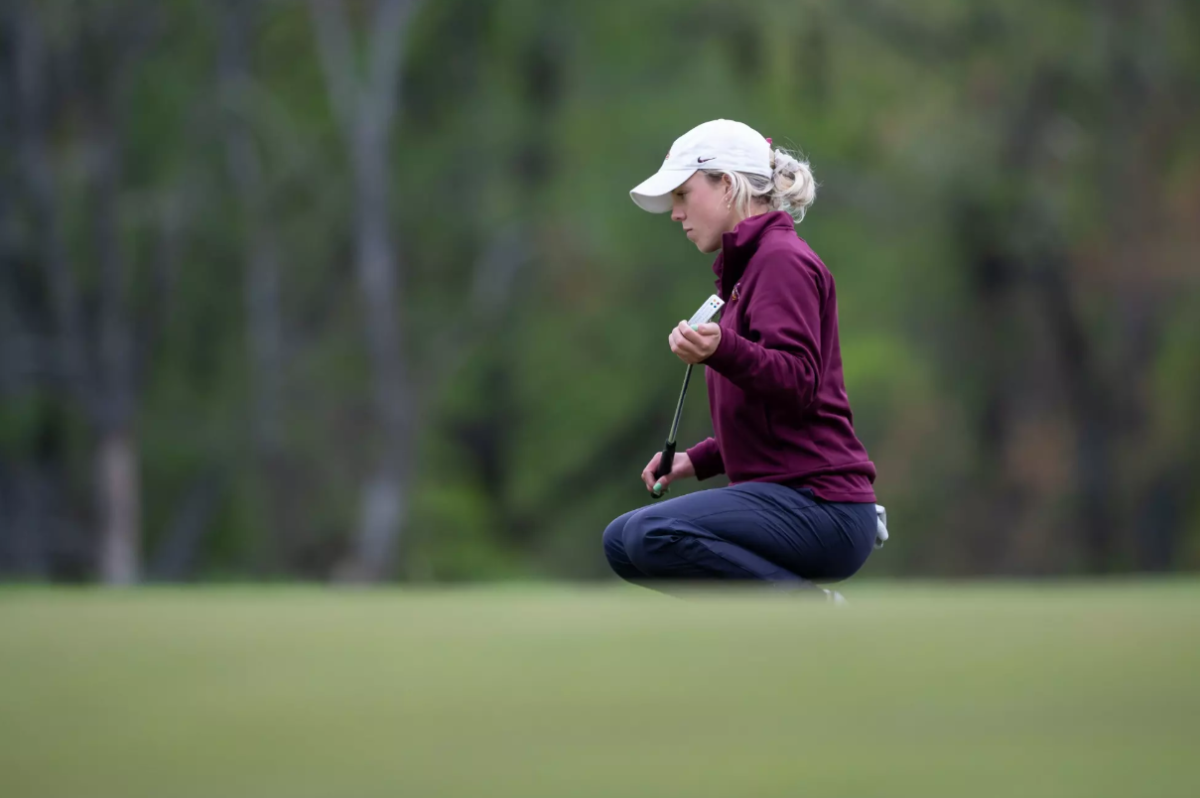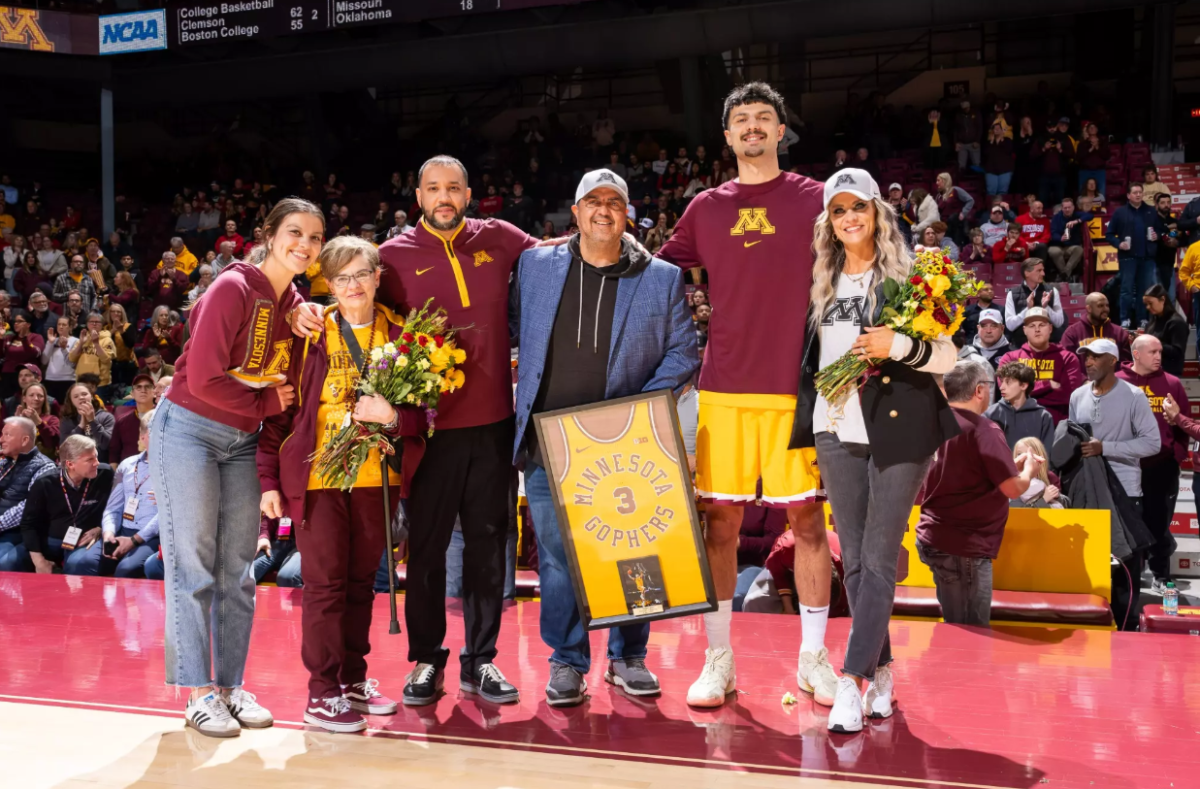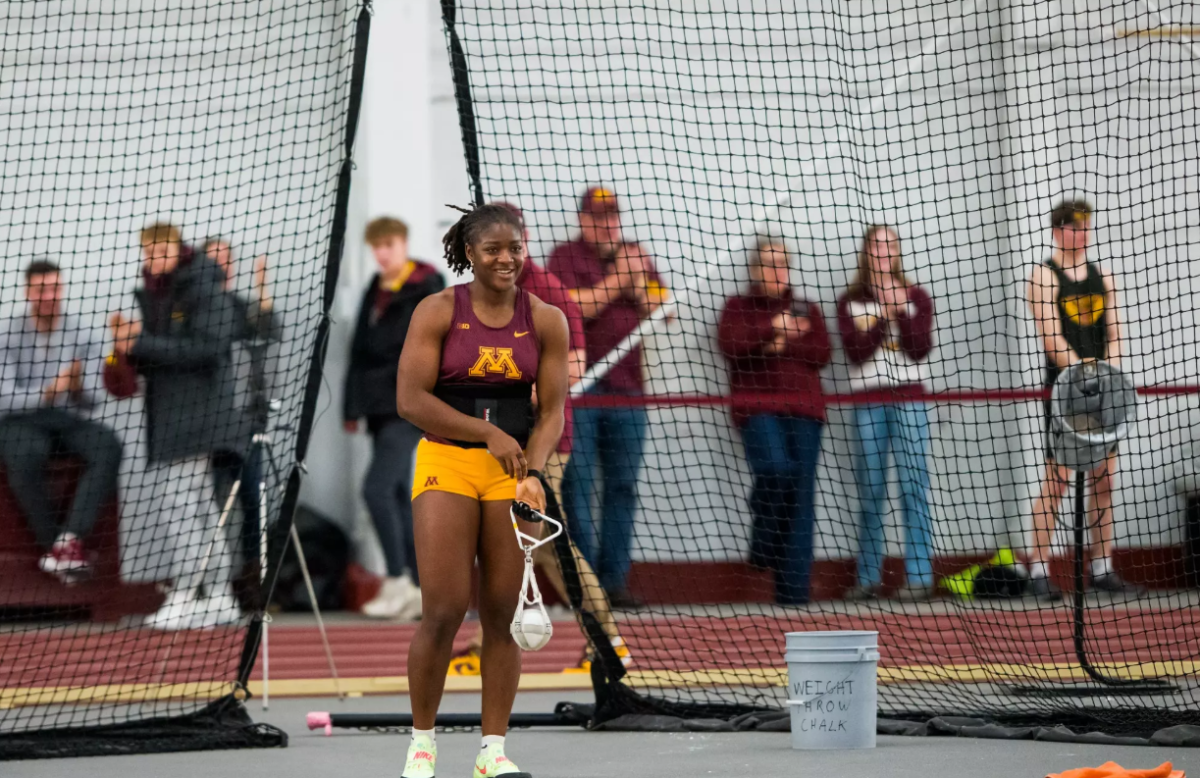While college athletics is a full-time job, athletes don’t turn any profit.
At least, not for themselves.
While revenue sports generate a lot of money for their respective schools, many traditionalists think student-athletes receive enough compensation already. But others see lucrative television deals and coaching contracts and say athletes in revenue-generating sports deserve more.
And the debate rages on nationally, including at the University of Minnesota.
“I wouldn’t think paying student-athletes is a good idea,” said journalism Senior Fellow Keith Moyer. “They’re already getting scholarships and getting their education paid for.”
Moyer, who teaches a sports journalism class at the University, said most athletics departments across the country are not capable of paying athletes directly or providing them with stipends. Paying student-athletes would essentially turn college sports into a profession, he said.
“It gets to a point where the amateurism is gone,” he said. “Do we really want agents and athletic directors sitting down to negotiate contracts with players?”
Sport management senior Lewis Smith agreed with Moyer’s concerns about paying student-athletes directly. He said he’s particularly concerned about how such a policy would ruin the balance of college sports.
“It would mess up recruiting,” he said. “It would create an even bigger gap between major schools and the little guys.”
NCAA officials have adamantly refused to install a “pay-for-play” program in the past. And recently, Big Ten Commissioner Jim Delany spoke out publicly against paying student-athletes.
History senior Sam Neisen said although he agrees that student-athletes make a lot of money for the University, he worries about payments possibly getting out of control.
“Where do you draw the line?” he said. “Paying athletes isn’t the solution that’s just going to fix everything.”
Other ways to compensate
About two weeks ago, video game manufacturer Electronic Arts, Inc., and Collegiate Licensing Company agreed to pay current and former student-athletes tens of millions of dollars to settle a lawsuit filed by former UCLA basketball star Ed O’Bannon.
The settlement has left the NCAA as the sole defendant in the antitrust case.
The lawsuit alleges the NCAA and its member schools conspired to sell the names and likenesses of student-athletes without proper compensation in return.
While Moyer was adamant about not paying college athletes just for playing, he said he thinks athletes should receive some compensation for the use of their likeness in video games, apparel and other memorabilia.
“If you’re using my face on an EA Sports college video game box, I should be able to get something for that,” he said.
He said the NCAA needs to have a well-defined set of criteria that lists what athletes can make money on and what they can’t.
Biology senior Alex Braaten said keeping limits on the way athletes can make money would please those on both sides of the argument.
Braaten said it’s OK for student-athletes to make money off of their likeness and apparel, but he said they shouldn’t be allowed to make money through autograph sessions.
This summer, the NCAA investigated Texas A&M quarterback Johnny Manziel for signing autographs for money. The NCAA found no wrongdoing in the case but reiterated that college players cannot receive payments for signing autographs.
“Autographs are more of a sentimental thing for fans,” Braaten said. “Anything that has to do with them doing their thing as an athlete should be compensated.”
Developmental leagues?
South Carolina defensive end Jadeveon Clowney was an elite NFL draft prospect last season.
But Clowney, then a sophomore, wasn’t allowed to enter the draft because NFL rules require athletes to be three years removed from high school in order to be eligible.
Moyer said allowing football players to be drafted right out of high school might help eliminate the controversy around compensating student-athletes.
“The NFL is getting its talent developed for free,” he said. “At some point, the pro football league needs to have some skin in the game.”
He suggested the NCAA and the NFL make an agreement that allows high school players to be drafted and still play college football.
While the players develop in college, the NFL team could compensate the player with insurance policies and other payments.
Neisen said the NFL should eliminate the age restriction altogether and allow student-athletes a shot at the pros immediately.
“If someone thinks he can make it as an 18-year-old going up against 30-year-old men, good luck,” he said. “Maybe that’ll be a way to preserve the integrity of college sports.”


